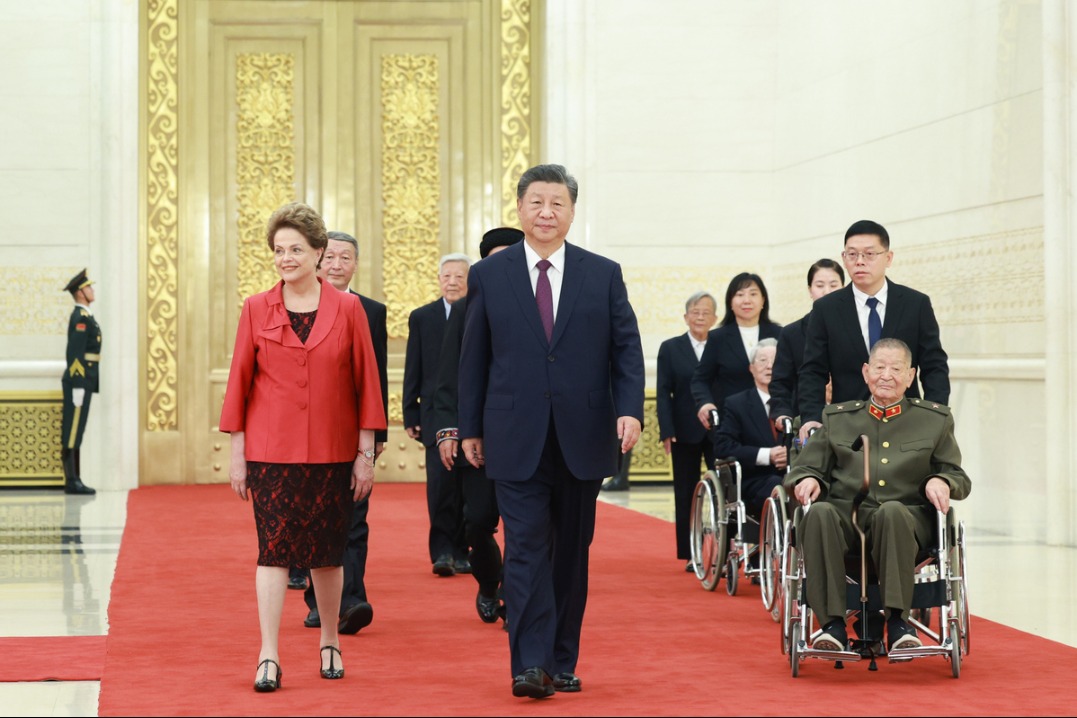Big milestone: NEV sales lead all segments
For the first time, green, smart vehicles account for 51% of market in July
China Daily | Updated: 2024-08-17 08:00

China's new energy vehicle or NEV sector has achieved a milestone by surpassing the market share of fossil fuel-powered cars for the first time, in an accelerated drive toward a greener and more intelligent future.
Retail sales of NEVs nationwide reached 878,000 units in July, accounting for 51.1 percent of the total market, according to data released by the China Automobile Dealers Association.
It is a historic moment not only for the transformation of the country's automotive industry but also for the global shift toward green transportation, analysts said.
"This is the beginning of a 'qualitative change' in the NEV market," said Zheng Yun, a senior partner and Asia head of automotive practice at Roland Berger, a consultancy.
The NEVs' market share in China was just above 1 percent in 2015 but surged in the following years, thanks to an expedited green transition of the economy. The market penetration rate exceeding 50 percent marked a solid step toward accomplishing the government's target of making electric vehicles the mainstream of new automobile sales by 2035.
Industry insiders attributed the popularity of NEVs to factors ranging from favorable government policies to corporate innovation.
Traditional automakers like BYD have rapidly embraced electric and digital technologies, while more tech firms, including Xiaomi, are also scrambling for a foothold in the auto sector. Advances in core technologies from batteries to intelligent systems, and the formation of an efficient and reliable industry chain, have further enhanced the competitiveness of Chinese NEVs.
Bill Russo, founder and CEO of Automobility Ltd, noted that favorable subsidies and incentives initially spurred consumer interest in NEVs, but now consumers are driven by more diverse reasons.
New NEV models in China offer better experiences for tech-savvy users than before, with enhanced technology features, lower maintenance costs, a longer driving range and improved power performance.
China's rapid expansion of charging infrastructure has also alleviated drivers' anxiety over range. The total number of charging piles jumped 54 percent from a year ago to 10.24 million by the end of June.
"Demand-driven market rather than policy-driven market has become the main factor boosting the sales of domestic NEVs," said Liu Jia, an electronics and automotive analyst of Nomura Orient International Securities.
In July, NEV sales rose almost 37 percent year-on-year, while traditional fuel vehicle sales declined 26 percent.
As the world's largest auto market, China's shift toward the green-clean era could reshape the auto industry from a global perspective.
"The rapid development of China's NEVs will help promote the global electrification process," Liu said.
Technologically advanced and cost-effective NEVs from China are well received in various countries and contribute to local green energy transitions, and Chinese carmakers have also strengthened their global push by building assembly lines and battery plants overseas.
"Although electric vehicles in overseas markets have performed not as expected this year, foreign automakers, such as Japanese and European ones, still increased their NEV investment in expectation of big future changes," Liu said.
A report of the International Energy Agency showed electric cars, referring to both battery electric and plug-in hybrid cars, accounted for around 18 percent of all cars sold worldwide in 2023, up from 14 percent in 2022 and only 2 percent in 2018. "These trends indicate that growth remains robust as electric car markets mature," the report said.
The auto industry accounts for 20 percent of global energy consumption, making its structural change an advanced indicator of energy shifts in the broader economy, said Wang Honglin, a research fellow at the China Academy of Financial Research, which is part of Shanghai Jiaotong University.
"The rising NEV industry is changing the auto industry completely, as well as the landscape of the whole manufacturing sector across the globe," Wang said.
"From autonomous driving to vehicle networking and smart charging, the integration of NEVs with intelligent systems will create a safer, more efficient and environmentally friendly transportation ecosystem."
Xinhua
























